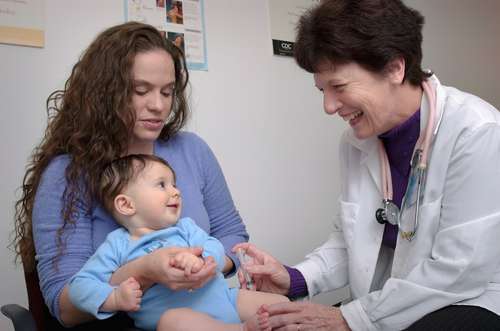Exploring the Role of Antibiotics, Vaccines, and Antivirals in Dementia Prevention
Have you ever wondered if the medications we take for common infections could have hidden benefits? Recent studies suggest that antibiotics, vaccines, and antivirals might just do more than fight off bugs—they could also play a role in reducing the risk of dementia. Imagine that! It’s like discovering your old toolbox has the perfect tool for a new problem you didn’t know it could fix.
This intriguing possibility emerged from a massive study involving over 55 million people, where researchers explored the connections between anti-inflammatory drugs and the incidence of dementia. The findings are eye-opening, hinting at the complex web of factors that influence dementia risk. But what exactly did this study uncover, and how do antibiotics and vaccines fit into the picture? Let’s dive in!
The Surprising Link Between Antibiotics and Dementia
Antibiotics are our go-to remedy for bacterial infections, but could they also be a secret weapon against dementia? It might sound far-fetched, but the evidence is mounting. **Amoxicillin**, **doxycycline**, **ciprofloxacin**, and **azithromycin** are among the antibiotics often prescribed for various infections. Researchers believe their anti-inflammatory properties could be key players in reducing dementia risk.
Inflammation is a known contributor to dementia, and antibiotics, by reducing bacterial infections, might indirectly lower inflammation in the body. Think of it as clearing out the clutter from your attic—by reducing the mess, you’re also reducing the risk of something falling on your head!
Moreover, a study has pointed out that people who had frequent courses of antibiotics like **augmentin** and **clindamycin** showed a trend towards lower rates of dementia. While this doesn’t mean you should start popping these pills without reason, it does open up exciting avenues for further research.
But why these specific antibiotics? Well, the secret might lie in their broader impact on our microbiome. Our gut health is increasingly linked to brain health, and antibiotics can influence this balance. It’s like tuning a guitar—get the strings right, and you’ll play a beautiful melody; disrupt them, and it’s a cacophony.
Vaccines: More Than Just a Shot in the Arm
Vaccines are our frontline defense against infectious diseases. But could they also be defending our brains? It’s a question worth asking, especially with the human papillomavirus vaccine and others gaining attention for their potential neuroprotective effects.
Vaccines work by training our immune systems to recognize and combat specific pathogens. In doing so, they might also be modulating our overall immune response, potentially reducing chronic inflammation—a known risk factor for dementia.
Consider the flu vaccine. Studies have suggested that individuals who receive annual flu shots may also enjoy a lower risk of developing dementia. It’s like getting a bonus with your morning coffee—protection from the flu and possibly a sharper mind.
Moreover, the **human papillomavirus vaccine** has been studied not just for its role in preventing cancers but also for potential long-term benefits on brain health. While research is still in its early stages, the idea that vaccines might offer more than just immediate protection is a tantalizing one.
As with antibiotics, the exact mechanisms remain to be fully understood, but the potential is there. It’s an exciting time for researchers and could lead to new strategies in dementia prevention.
Antivirals: A New Frontier in Dementia Research
Antivirals, like antibiotics, are designed to fight infections, specifically viral ones. With their ability to reduce viral load and inflammation, could they also be contributing to dementia prevention? It’s a question that researchers are keen to explore.
Consider medications like **acyclovir** and **oseltamivir**. While primarily used to combat herpes and influenza respectively, their role in reducing systemic inflammation could have unexpected cognitive benefits. It’s like using a Swiss army knife—not just for camping but also for solving everyday problems you didn’t anticipate.
Infections and inflammation are closely linked to the progression of dementia. By managing these factors, antivirals might offer a protective effect on the brain. Some studies have even suggested that individuals with frequent exposure to antivirals have a lower incidence of dementia, though more research is needed to confirm these findings.
The potential of antivirals in dementia prevention is an exciting prospect, offering a new frontier for researchers to explore. With continued study, we may unlock yet another piece of the complex puzzle that is dementia.
The Need for Further Research
While the findings are promising, it’s essential to approach them with a healthy dose of skepticism. The relationship between antibiotics, vaccines, antivirals, and dementia is complex and not yet fully understood. Like a detective story with missing pieces, we need more clues to solve the mystery.
Researchers must conduct more rigorous studies to determine causality and the underlying mechanisms at play. As of now, the evidence is largely observational, and we can’t jump to conclusions without further investigation.
The sheer scale of the study involving over 55 million participants is impressive, but it’s only the beginning. Future research will need to explore specific medications, doses, and the long-term impact on brain health. It’s like setting off on a road trip—you’ve got your map, but the journey is far from over.
In the meantime, it’s crucial to continue promoting healthy lifestyle choices known to reduce dementia risk, such as regular exercise, a balanced diet, and mental stimulation. These remain the cornerstones of dementia prevention.
Where Do We Go from Here?
The potential link between antibiotics, vaccines, antivirals, and dementia prevention is a fascinating area of study. While we’re not there yet, the journey is promising, offering hope for new strategies to combat this challenging condition.
For now, it’s important to stay informed and engaged with ongoing research. The more we understand about the factors influencing dementia, the better equipped we’ll be to prevent it. Like assembling a jigsaw puzzle, every piece brings us closer to the full picture.
In conclusion, while antibiotics, vaccines, and antivirals show promise in reducing dementia risk, we must wait for more evidence before making definitive claims. Until then, let’s keep asking questions, exploring new possibilities, and supporting the research that could one day change the way we approach dementia prevention.




